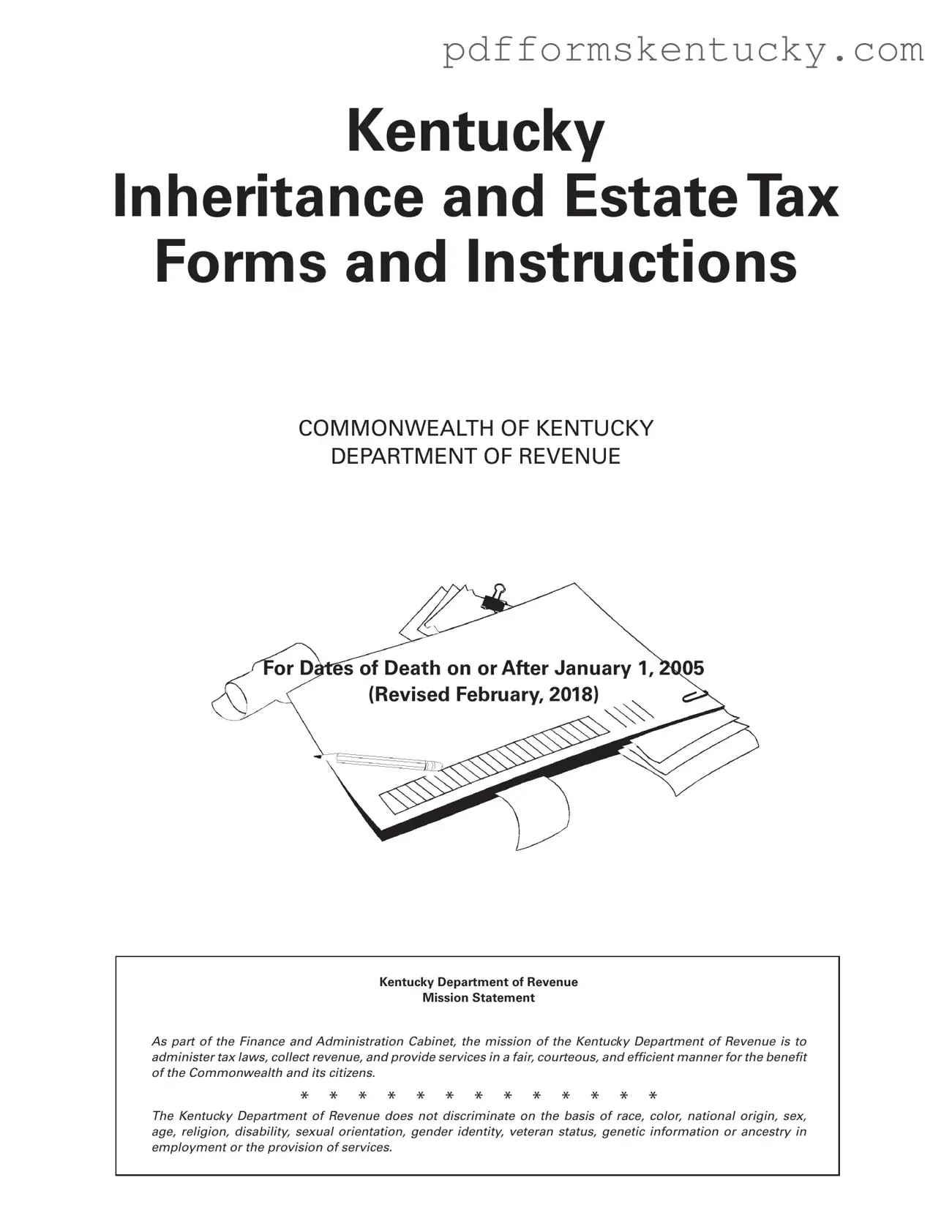The Kentucky Inheritance Tax form is used to report the transfer of assets from a deceased person to their beneficiaries. It determines if any inheritance tax is due based on the value of the estate and the relationship of the beneficiaries to the decedent. The form must be submitted to the Kentucky Department of Revenue if taxable assets are involved.
What are the different types of Kentucky Inheritance Tax forms?
There are several types of forms available:
- No Tax Due Return (Form 92A201)
- Inheritance Tax Return (Form 92A200)
- Inheritance Tax Return (Short Form) (Form 92A205)
- Real Estate Valuation Information Form (Form 92A204)
- Election to Defer the Payment of Inheritance Tax Through Installments (Form 92A928)
- Affidavit of Exemption (Form 92A300)
Each form serves a specific purpose based on the estate's circumstances and the beneficiaries involved.
What is an affidavit of exemption?
An affidavit of exemption is a document that can be filed when all assets of the estate pass to exempt beneficiaries, and no inheritance tax is due. This affidavit must be submitted to the court and is not sent to the Kentucky Department of Revenue. It allows for the final settlement and closing of the estate administration without filing a tax return.
What are exempt beneficiaries under Kentucky law?
Exempt beneficiaries include a surviving spouse, children, stepchildren, grandchildren, parents, brothers, and sisters. Additionally, exempt organizations such as educational, religious, or charitable institutions also qualify under Kentucky law. Transfers to these beneficiaries do not incur inheritance tax.
When is the Inheritance Tax Return due?
The Inheritance Tax Return is typically due within 15 months of the decedent's date of death. However, if an extension is needed, it is advisable to file for an extension before the original due date to avoid penalties.
What happens if the inheritance tax is not paid?
If the inheritance tax is not paid, the Kentucky Department of Revenue may impose penalties and interest on the unpaid amount. The estate may also face legal actions, and the distribution of assets to beneficiaries could be delayed until the tax is resolved.
Can the inheritance tax be paid in installments?
Yes, Kentucky law allows for the payment of inheritance tax in installments. To take advantage of this option, the executor or administrator must file Form 92A928, which provides the details for deferring tax payments. This can help manage the financial burden of the tax over time.
Where can I find assistance with the Kentucky Inheritance Tax form?
Assistance is available through the Kentucky Department of Revenue. They provide resources, including forms and instructions, on their website. Additionally, taxpayer service centers can offer guidance in person or via phone.

